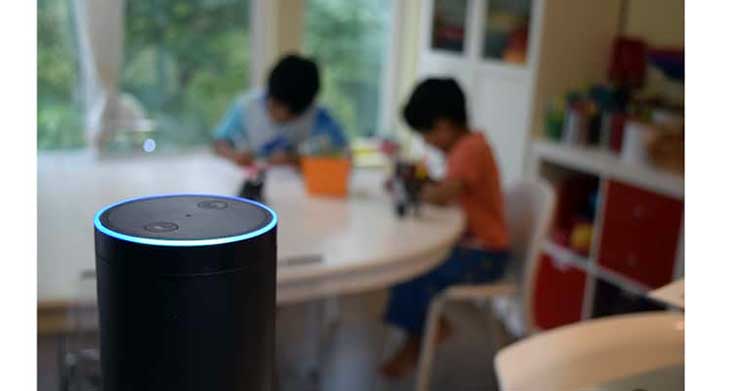Secure your Kid's Spot in our Writing Classes! Register here!

What we're talking about!
Check back often for updates!

Yes, we have been lately obsessed by the effects of interaction with voice activated digital assistants on kids. Last week we spoke about the not-so-explicit effects of Alexa on kids. This is the third and final piece of our series ‘I, Alexa‘. Please note that for our discussion, Alexa is a representation of all digital assistants.
In this piece we explore ways to prepare kids for a world that they will actually live in. We need to teach them the perpetual things, like good manners and the new things, like the truth about Artificial Intelligence (AI).
As the digital voice assistants are becoming an integral part of consumer device usage, millions of parents have suddenly been forced to grapple with this new parental dilemma of defining boundaries on the usage around kids. Already 20 percent of U.S. households have some kind of smart speaker and research says, that percentage will rise to 55 percent within the next four years.
AI driven assistants are not 100 percent child proof, at the same time they are not the big bad wolf either. Beyond any doubt, it is important for us as parents to consider certain ways to define interaction between our children and the Alexas of today. After all, parents are gatekeepers for their children’s online experience, not just for our Alexas and Cortanas but for all digital devices.
Here are some of the things that we can do to make sure our children have a healthy growing environment amidst our Alexas. While this is not a comprehensive list, it certainly is a place to start.
Don’t Be Rude
While interacting with our humanoid helpers, as parents we run into the courtesy conundrum. Should our kids say please to Alexa or is it okay to call her an idiot? I think either is an extreme and the key is balance here.
Repeating pleasantries to Alexa can lead to over-humanization of Alexa, which in turn can blur the lines between animate and inanimate objects. With increased penetration of voice activated systems in our daily lives – from smart homes to smart cars, it is on us to help children conceptualize virtual assistants in a healthy way.
I think, for the same reasons that you don’t go kick a door after you bumped into it and got hurt, you don’t abuse Alexa.
The rule is simple here.
“Don’t be bossy pants.”
Limit the Time
One of the challenging aspects with Alexa is that it is available for use 24×7. Being screen-less you cannot really put it away. Being screen-less has its upsides of not having to stare at a screen or be sedentary.
“These devices certainly offer more engagement and interaction than just passively watching a TV”, mentions Solace Shen, a psychologist at the Cornell University. “But that interaction is still impoverished compared to talking to a parent or a teacher.”
It is imperative to remember that at the end of the day Alexa or Home Pod is a digital device. Like any other device of technology it is a great tool for learning but it is not a replacement for human interaction. In general, it helps to think of these devices as tablets. We have to make sure that there is a balance between the time kids are interacting with the systems versus interacting with humans, doing physical activities and getting enough rest.
Keeping that in mind, there can be certain times during the day when we can avoid interacting with Alexa. Our questions, however inquisitive they are, can wait until we finish our conversation with real people or playing ball with our friends.
So it is okay to say,
“Alexa, stop. We are having dinner now.”
Engage In The Dialogue
“One solution for families with smart speakers is to stay intentional about deepening their relationships through intentional, loving interactions”, says Peter Kahn, a psychologist at the University of Washington.
Alexa can sing lullabies to children, remind them of bedtime and provide positive reinforcement when kids say please. But a machine cannot know a child the way a parent does.
As parents we need to be aware that Alexa is a passive system. If she doesn’t have the answer to a question, jump in and suggest other ways of attaining that knowledge. Digital assistants are amazing tools to gather information but don’t let them implicitly teach children that knowledge is easily attainable.
As immediate adults in the vicinity of Alexa we can enrich the dialogue by asking our own questions or mixing it up and asking the kid a few questions. If we are not around when the kids are talking to Alexa (and that is totally okay), we can certainly follow-up afterwards to see how they have been using it. It can be a very nice conversation starter as well, something different from asking, ‘How was school today?’
So do not just watch your kids interact with Alexa,
“Be an active part of the Alexa interaction.”
Help your kids fall in love with reading!
Need a list of amazing books to get your kids inspired about writing their own stories?
Grab your free copy by completing the form.
We'll email you the ebook!